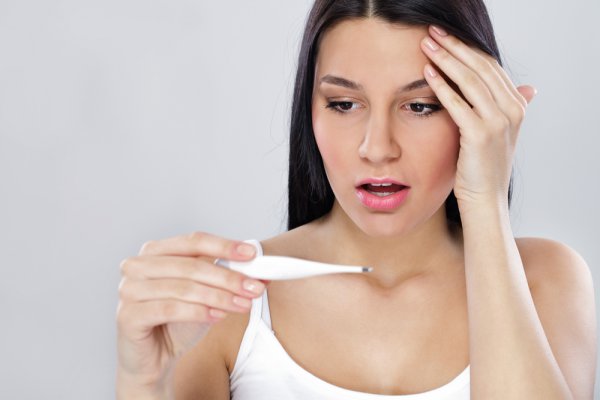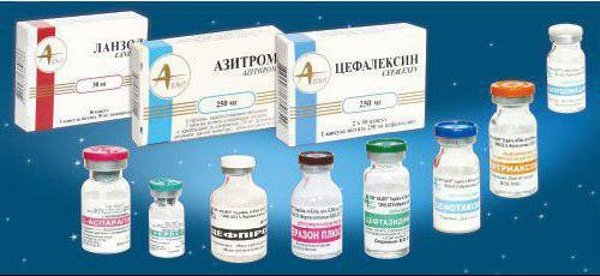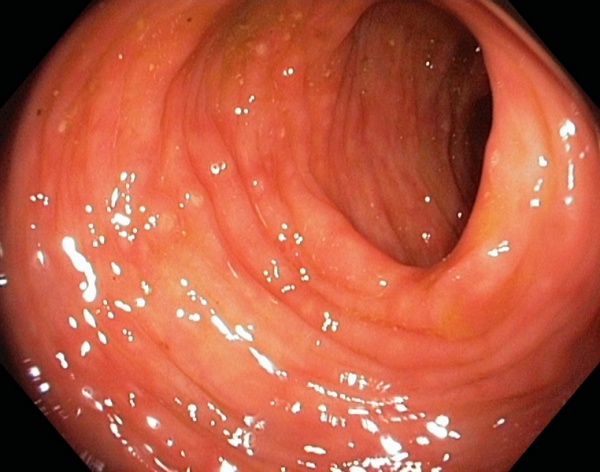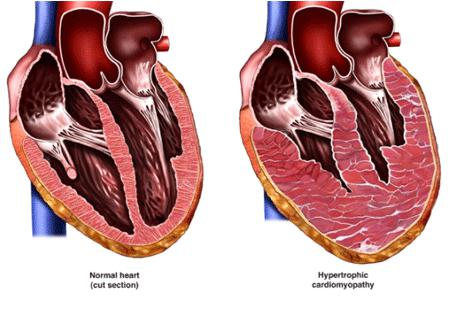How to treat inflammation of the appendages
Inflammatory diseases of the pelvic organs are one of the most common pathologies in the gynecological practice of doctors. According to medical indicators, about 60% of diseases of the female genital area develop against the background of inflammatory processes in the ovaries, uterus, fallopian tubes, and appendages.
The term "appendages" refers to all adjacent organs of the uterus (fallopian tubes, ovaries). Inflammation of the appendages belongs to the group of infectious and inflammatory processes in which the ovaries or tubes of the uterus itself are most often involved. In cases where inflammation affects the uterus, symptoms of endometritis most often join.
In gynecology, diseases of the appendages can be found under the name adnexitis (inflammation of the ovaries) or salpingo-oophoritis (inflammation of the fallopian tubes). Given that these organs are anatomically closely related, the doctor often makes a diagnosis of inflammation of the appendages. What are the causes and symptoms of the disease, how to treat inflammation of the appendages and how dangerous this disease is.
Inflammation of the appendages: causes
Normally, the pelvic organs, including the appendages, do not have pathogenic flora, but with certain factors or diseases, pathogenic bacteria are able to penetrate inside, provoking the development of inflammatory processes. It is known that any inflammatory disease is caused by pathogenic microorganisms. In this case, the cause of inflammation in the appendages can be any bacteria that have penetrated the mucous membranes of the genitourinary system: viruses, fungi, gonococci, chlamydia, streptococci, staphylococci, spirochetes, protozoa, herpes simplex viruses and others, which, after penetrating the body, actively multiply, causing symptoms are characteristic of inflammation of the appendages. Any of the pathogenic microorganisms can not only cause symptoms of inflammation of the appendages, but also other diseases. For example, chlamydia - chlamydia, fungi - vulvitis, candidiasis, gonococci - gonorrhea and other diseases that are often among those that are sexually transmitted.

Pathogenic microbes can enter the body not only through sexual contact, but also through contact, household, as well as in case of non-observance of elementary hygiene rules or in contact with a carrier of the pathogen. Of particular importance in the development of this disease is the state of the immune system. If a woman's immunity is strong, it will not allow the activation of any microorganism. In cases where the immune system is weak, the risk of getting sick increases several times. In addition, there are a number of specific factors that are a trigger for the development of inflammatory processes in the appendages. Among these factors are:
- Hypothermia of the body.
- Overwork;
- Constant stress;
- Unbalanced diet;
- constipation;
- Promiscuous sexual relations.
- Abortion.
- childbirth;
- Sexual contact during menstruation.
- Poorly conducted gynecological examinations.

In addition to the above factors, inflammatory processes in the appendages can be triggered by physical or mental stress, endocrine disorders, internal infections of other organs. In any case, inflammation of the appendages must be treated, since the lack of timely treatment entails complex and sometimes dangerous complications.
Symptoms of inflammatory processes in the appendages
Inflammation of the appendages - symptoms can occur in acute or chronic form. The acute form of the disease has a pronounced clinical picture, and chronic inflammation of the appendages has a more blurred symptomatology, which is characterized by periods of remission and exacerbation. With inflammatory processes in the appendages, a woman experiences the following symptoms:
- Pain syndrome. Localized pain with inflammation of the appendages in the lower abdomen. It can have different intensity, give to the sacrum or thigh. Pain increases during menstruation or sexual intercourse. If a woman suffers from a chronic form of the disease, then the pain syndrome may be present constantly, intensify with exacerbation.

- Violation of the menstrual cycle. Menstruation with inflammation of the appendages is almost always irregular, quite painful, severe bleeding can be observed. In rare cases, menstruation is too short and scanty.
- Discharge from the vagina from purulent to mucous with an unpleasant odor.
- Itching, burning in the vagina.
- Increase in body temperature. During an exacerbation, body temperature can rise to 39 degrees.

- General malaise. Occasionally there is nausea, dry mouth, increased fatigue.
- Violations of the functions of the urinary system. Discomfort, pain when urinating.
- Disorders in the work of the nervous system: increased irritability, depression.
- Decreased libido.
Signs of inflammation of the appendages can be determined by the results of a blood test. In inflammatory processes, the blood formula changes significantly, the ESR increases. In addition, during a gynecological examination at a gynecologist's appointment, a woman feels severe pain in the ovaries and uterus. The above symptoms may also be present in other diseases of the genital organs, therefore, only a doctor can make an accurate diagnosis after examining the patient, the collected history, the results of laboratory and instrumental studies: blood test, urinalysis, ultrasound of the pelvic organs and others that will allow the doctor to get a complete picture diseases, make the correct diagnosis.

Possible Complications
Inflammation of the appendages - symptoms and treatment should be carried out in a timely manner and only under the supervision of a doctor. In cases of untimely or incorrect treatment, there is a risk of developing complications that are not life-threatening for a woman, but can lead to the development of a chronic form of the disease, as well as infertility.
It is important to note that women who have had inflammation of the appendages are 10 times more likely to be diagnosed with an ectopic pregnancy. Complications develop against the background of the formation of scar tissue on the ovaries or tubes. In rare cases, a complication manifests itself in the form of purulent processes in the fallopian tubes. This complication requires surgical removal of the fallopian tubes or ovaries.
Inflammation of the appendages: methods of treatment
Every woman should clearly know how to treat inflammation of the appendages, but in any of the cases, therapeutic measures should be carried out under the supervision of a doctor. In the acute period of the disease, treatment is carried out in a hospital and should include both drug treatment and diet and proper lifestyle. In the acute period, a woman is recommended bed rest, the use of low-fat and unsalted foods.
An important place in the treatment is occupied by antibacterial therapy, the action of which is aimed at the destruction of the causative agent of the disease. Usually, the doctor prescribes broad-spectrum antibiotics, among which the following drugs can be distinguished:
- Penicillin group - Amoxiclav, Augmentin;
- Cephalosporins - Ceftriaxone, Cefazolin;
- Macrolides - Erythromycin, Macropen, Fromilid.

The doctor may prescribe other antibiotics that affect the pathogenic flora. Antibiotics for inflammation of the appendages are prescribed in the form of injections for intramuscular or intravenous administration or in the form of tablets for oral administration. In the acute period, it is recommended to take antibiotic injections, as they can quickly remove the inflammatory process, thereby reducing the symptoms of the disease. The effectiveness of the treatment should be observed on the first day. The course of treatment takes from 5 to 10 days. If positive dynamics is not observed, the doctor may change the antibiotic or prescribe more radical methods of treatment (surgery).
In addition to antibiotics, the doctor also prescribes other medications:
- Non-steroidal anti-inflammatory drugs: Ibuprofen, Intomethacin.
- Vaginal suppositories. They have a positive effect on pathogens, act directly in the focus of inflammation. Such drugs are administered at bedtime. They have antimicrobial, anti-inflammatory, bactericidal action: Terzhinan, Polygynax, Klion-D and others. Such drugs do not affect the microflora of the vagina, have a minimum number of contraindications and are well tolerated by the female body.
- Vitamin therapy. Vitamins of groups B, C and E are prescribed, as well as immunostimulants to increase immunity.
A good effect in the treatment can be obtained from physiotherapy procedures: UVI blood, electrophoresis, laser treatment, UHF and many other methods. Physiotherapy can be used both in the acute period and in the chronic form of the disease.
- Intercostal neuralgia - what is it and how to treat
- How to quickly get rid of dry corns on the legs
- How to treat left ventricular hypertrophy
- Rating of the best drugs for rotavirus for children
- Making tea from currant leaves, the benefits and harms of the drink
- How to drink hydrogen peroxide according to Neumyvakin - an oral regimen
- Features of the treatment of plantar fasciitis with folk remedies
- The composition and beneficial properties of parsley root
- How to get pregnant quickly? Folk remedies
- Herbs-ants in the "pot-bellied" period or the use of herbal medicine during pregnancy
- Why does a sore throat and dry cough occur, and what treatment is required?
- Guy's Room Design: Ideas and Examples
- General rules for drawing up a foundation plan House foundation drawings
- modern art deco bedroom small art deco bedroom
- Pansies: characteristics and photos of flowers
- Making an art deco bedroom: the choice of materials Beige art deco bedroom
- Bedroom interiors in art deco style Bedroom art deco style beige
- Young: planting and care in the open field Young planting and care in the open
- Varieties for open ground
- Pansies: cultivation and care in the open field









